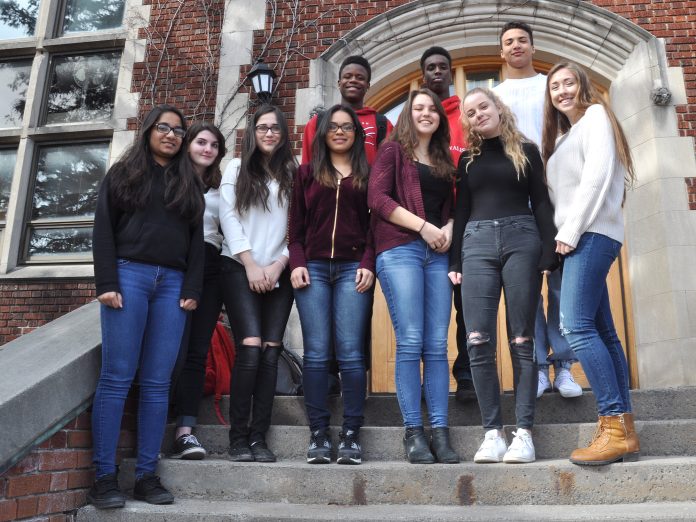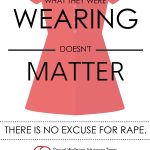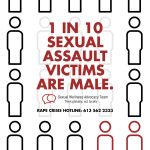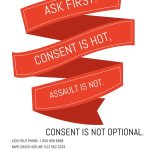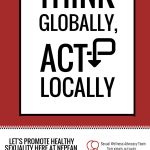By Andrea Tomkins –
A group of students at Nepean High School has launched a new initiative to educate their peers – and get them talking – about healthy relationships.
The official goal of SWAT, which stands for Sexual Wellness Advocacy Team, is to create a “safe, respectful and sex-positive environment at Nepean” and initiate discussions about issues such as consent and healthy sexuality.
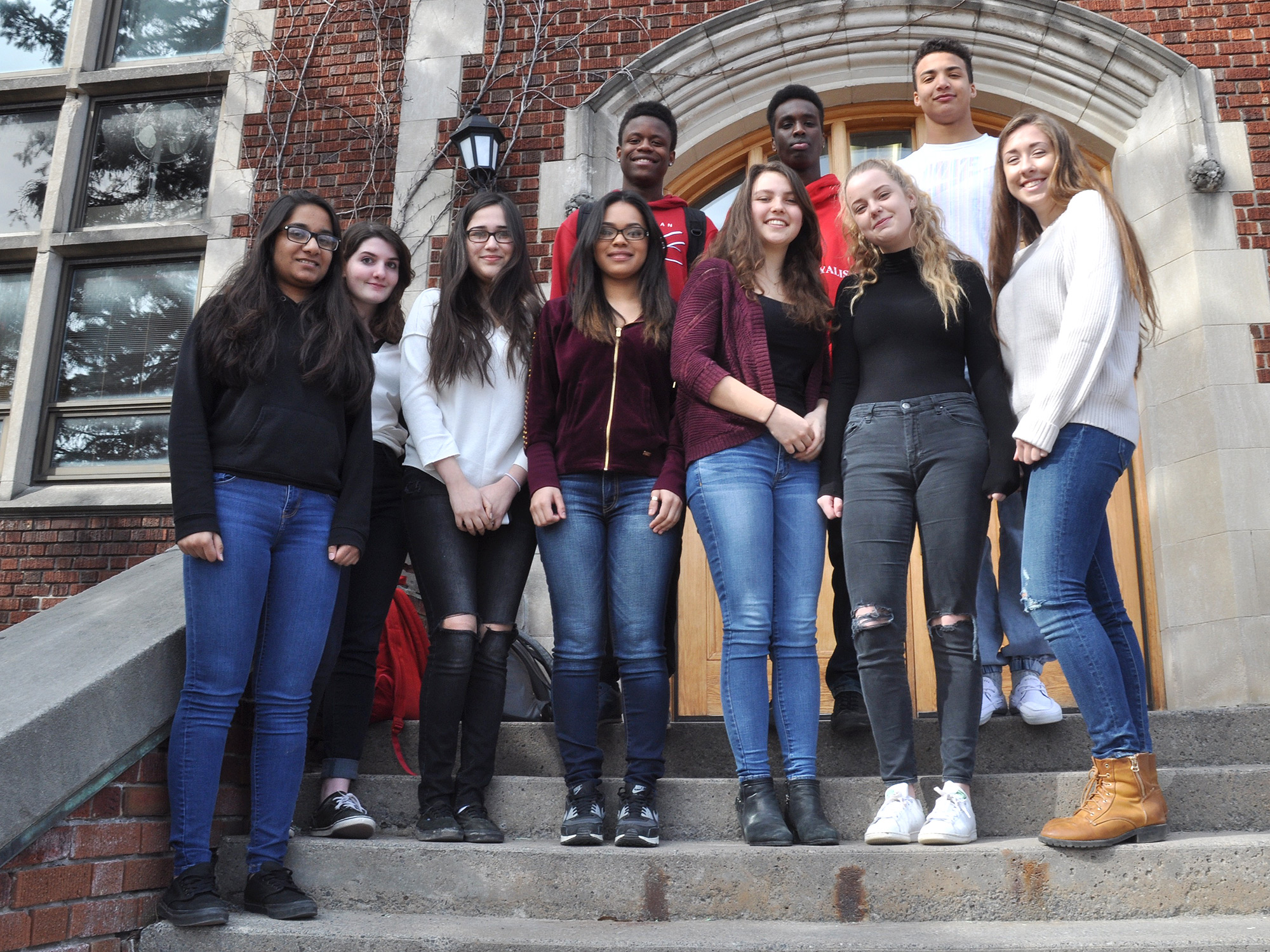
Three founding members of the group – grade eleven students Hannah Thomsen, Maya Seymour, and Julia Paris – sat down with KT to talk about how this initiative began and what they hope to achieve.
The first item on their list: to find ways to change the words some students use to describe a bad situation. In fact, the idea of SWAT came out of a casual reference to rape made by a classmate while tests were being handed back.
“I heard somebody in the class say, ‘man, that test just raped me,’” describes Hannah. “I thought about it, and I told Maya, and we both got really angry.”
“The term “raped me,” used in that context – those casual references – that’s part of what the girls really wanted to raise awareness of,” says Nepean Principal Patrick McCarthy. “This is a really serious issue and it affects a lot of people and a lot of lives, and to use it as a punchline is not acceptable.”
The SWAT initiative is still very new. The students’ original plan was simply to create posters and hang them around the school, but they were encouraged to do some research, have discussions, and take it further. The group now plans to invite guest speakers to the school and roll out issue-specific “blitzes” that will include information about rape culture, consent, and victim shaming, all keeping within their overall objective to “think globally and act locally.”
Although healthy relationship posters are not an uncommon sight at OCDSB high schools, this kind of targeted student initiative is a first for the board. The SWAT members are hoping it will spread to other schools next year.
The group’s teacher advisor, Jessica Houghton, who also runs Nepean’s Gender Sexuality Alliance Club, is also encouraging the students to think beyond a poster campaign. For example, a survey will help gauge where the school is at in terms of their understanding of the issues and help SWAT determine where they should be focusing their efforts.
Early feedback from teachers and peers has been positive so far. “The people we’ve talked to about it appreciate what we’re doing,” says Maya. “Understandably, students seem to have a lot of questions about rape culture and what it means in the context of going to school at Nepean.”
Hannah defines rape culture as a “society that validates and perpetuates rape culture and can, in some situations, encourage the concept of rape by casual references.”
“We’re addressing this here, but it’s a bigger societal problem, not a Nepean problem,” adds Julia.
Patrick is careful to point out that SWAT students are not the only source of support for peers who come forward with bigger questions. One of SWAT’s goals is to give students a way to get help. Posters refer students to sexual assault hotlines and organizations such as Ottawa Public Health, Youth Services Bureau, and the Kids Help Line. The message: help is here if you need it.
“We want to provide a safe space so students can educate themselves and talk about their opinions and be able to develop their skills in dealing with these kinds of issues,” says Julia.
Although the initiative is still in its early stages, the key players have already learned a lot about themselves.
“I’ve never realized how sensitive a topic [sexual assault] was for some people,” describes Maya. “I grew up in a very liberal family and we’re very open about discussing these kinds of things, but I’ve been made aware that certain people and certain families are not comfortable about talking about sexual assault…. we’ve learned how to address it in the right way.”
“I’ve become much more aware of these issues,” adds Hannah. “And they’re complex issues you can spend years learning about. There’s a lot I didn’t know. Sometimes, unless you go out looking for the information, you won’t see it.”
Here’s the big question: are the SWAT students better equipped now that they’ve spent so much time researching and planning their awareness someone compare rape to a poor grade on a test today?
“I’ve had people say it to me, and I ask them if that’s really an appropriate word to use,” says Hannah. “You can’t use the word ‘rape’ when describing a test or a basketball game. They don’t think about it, they just say it. Most people will realize that it’s not an appropriate word to use.”
Julia adds that when addressing people who use a derogatory term, the most important thing to do is not shame them. She admits it’s better to “be kind” about it.
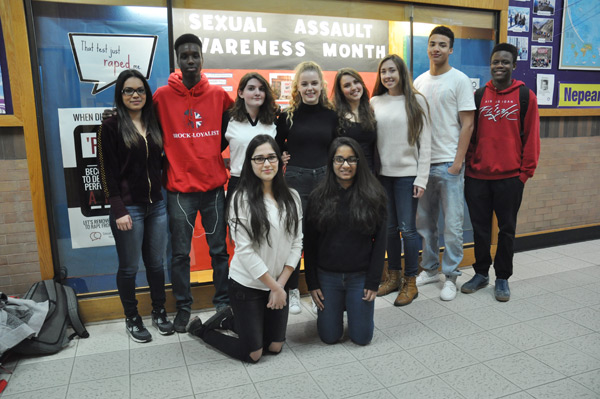
“I’m very passionate about this [issue]. Before, I’d attack them, which just makes them defensive and makes them want to prove you wrong,” says Julia. “Whereas if you just ask them about their logic in using that specific word or just prompt them to reconsider, they’re probably going to work with you and be more open to change.”
Principal McCarthy is proud of the work the SWAT group has done so far.
“These are strong students, strong people, and the easiest thing in the world for them would have been to walk past this, to ignore it. They took this as an opportunity to have a really positive impact here [at Nepean] and they took that challenge on. They’ve really taken on a leadership role in helping other people understand this issue in a more mature way. And that’s been really impressive to watch.”
